A project by Janna Lichter
University of Applied Sciences Düsseldorf
with Prof. Anja Vormann
The project What are you searching for? is an open process of reflection on friendships in Israel and Palestine. Friendships I made during my semester abroad, some of which have lasted to this day and others that have faded. In the midst of our twenties, when we were all searching for answers, we got to know each other, shared perspectives on life, and helped each other along our personal journeys. What are you searching for? makes me think of friendships that make me understand the world, society and myself better. The result is not only portraits of people searching, but also a portrait of myself searching. Sixteen people are represented in this project. People with whom I have lived, studied, travelled and spent time together.
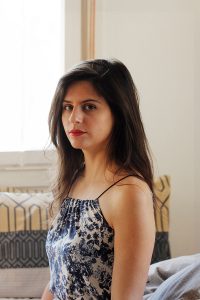
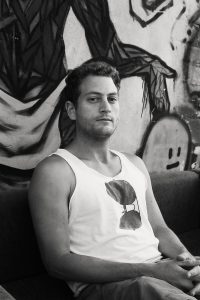
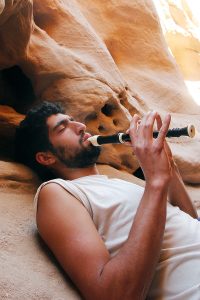
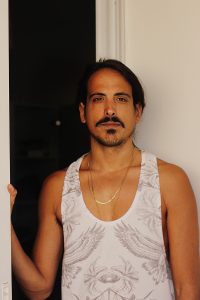
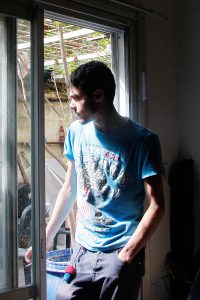
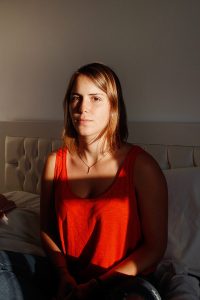
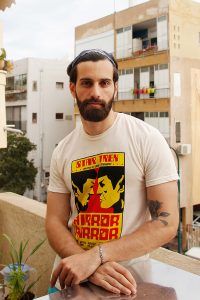
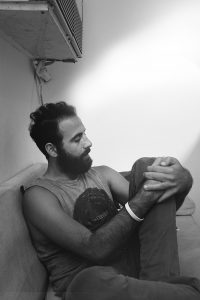
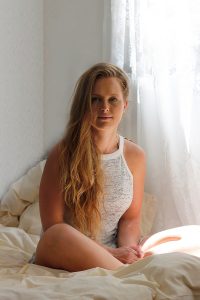
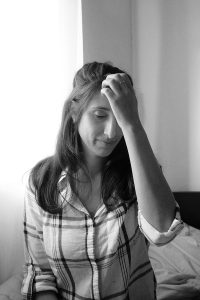
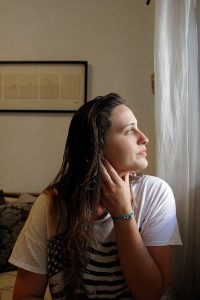
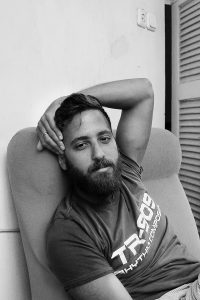
{Excerpt of 1/16 stories: Arad, 26 years old, Samar}
The bus had let us out in the middle of the desert. I looked around, slowly it began to dawn. Behind the bus stop we discovered the fenced kibbutz. Lina, Bhavika and I were studying together in Tel Aviv and had planned a trip to the Negev Desert. Someone had given us Arad’s number and invited us to Samar.
Cautiously, we entered a yellow entrance gate and walked between pieced-together houses and front yards. To me, it felt like a commune trying to build a life apart from society, that I could learn from. That’s when Arad approached us. The only thing I knew about him so far was his deep voice on the phone and I was surprised that he was my age. We hugged and he led us in to his small wooden hut that he shared with his friend Ido. They had both known each other for a long time and had gone to military service together. Arad had a military accident while on a mission in Gaza. He had fallen off a cliff and Ido had carried him to the nearest infirmary. It took two years for Arad to walk normally again, and you could feel the bond between the two of them. The room was full of small details, such as homemade mobiles, pictures of animals or collected stones. But Arad slept outside every night, even when no guests were visiting.
The room was supposed to be our home for the next two nights. We unpacked our things, got mattresses from the neighboring cabins and built ourselves a small sleeping area. But before we went to sleep, dinner was served in the common dining room. Arad told us that he had come here with several friends after his military service. I had the dull feeling that everyone who was here was struggling. My suspicions were quickly confirmed; every single person here had their story to bear. Samar seemed to be seen by many as a place of transit, a place of healing. Forever, almost none of the people I met could imagine staying forever …